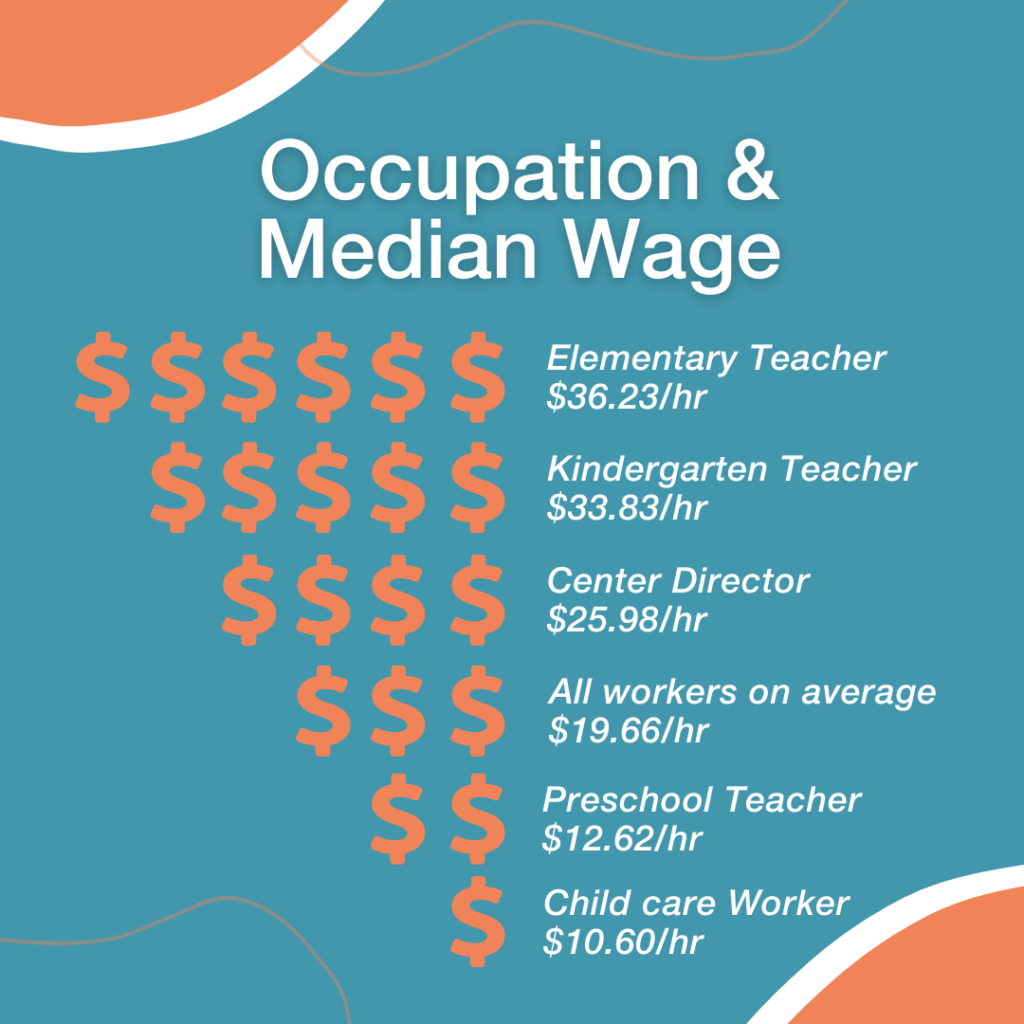Reinforcements Forthcoming for Embattled Early Childhood Workforce
• This month, state agencies released a state compensation scale for early child care educators, as directed by a resolution that passed the legislature last session.
• A targeted wage scale could provide guidance for Delaware on what the high-skill profession should earn.
• President Joe Biden’s Build Back Better federal proposal in budget reconciliation requires states to ensure adequate wages for child care professionals.
• The child care industry faced a workforce crisis even before COVID-19.

Delaware and the nation’s child care crisis has hit like a perfect storm—impacting not only families and providers, but the economy at large. Nowhere has the storm battered more fiercely than the early childhood workforce itself—where low pay and long hours often mean struggling to pay bills and find care for their own children.
A target wage scale for early childhood educators, we wrote last spring, could improve compensation and set a base salary for all workers—a first step to professionalizing the field and investing in the workforce, which is primarily comprised of women of color.
This month, the Delaware Department of Education (DDOE) and the Delaware Early Childhood Council (DECC) released its state compensation scale for early child care educators, as directed by a resolution that passed the legislature last session.
The proposed framework is not tied to a specific role or job title. Instead, it incorporates salary guidelines in a proposed annual salary (which presumes paid time off) as well as equivalent hourly wages.
The report does not include benefits, scholarships, or professional development incentives, which were mentioned in the resolution, and will be implemented by the state in tandem with early childhood programs adopting this framework.
The report maps out a professional pathway that includes years of experience, competencies, credentials, and degrees and includes alternative routes and multiple pathways.
For example, a “Level 1” educator, identified in the initial framework as carrying a high school diploma or equivalent, plus a certain combination of credentials, could be on track to earn $40,560/year ($19.50/hour), or the approximate state living wage for a family with one child.
As we’ve written many times, early learning educators and professionals receive lower pay compared to their K-12 counterparts—about half as much for a job that is full day, full year, and typically without benefits of paid time off. As of 2018, one in 10 child care workers had incomes that fell below the federal poverty line, twice the rate of the poverty rate for all workers.
[Read: Improving Child Care Compensation Backgrounder 2021 from The BUILD Initiative, and register for the group’s “Child Care Compensation Counts: 8 Strategies” webinar, featuring Rodel’s Madeleine Bayard.]
However, as the report also mentions, President Joe Biden’s Build Back Better federal proposal in budget reconciliation requires states to ensure adequate wages for child care professionals, including, at minimum, a living wage and wages equivalent to elementary educators with similar credentials and experience, adjusted annually for cost of living increases.

There are more bright spots for the early learning profession.
Through the SEED Scholarship, Delaware Technical Community College offers an early childhood education diploma.
And at some local high schools, students in the Early Childhood Teacher Academy pathway may earn credentials and credit hours at Delaware Tech.
The DDOE and Office of Early Learning (OEL) recently announced a scholarship program for anyone pursuing an early childhood credential or degree. Administered by Children & Families First (CFF), the scholarship covers coursework and assessment fees for CDA candidates, and tuition and other fees for candidates attending an approved college/university.
Related Topics: Delaware education, early child care, early learning workforce, legislation, wage scale